MISREMEMBERING DR. KING
MISREMEMBERING
DR. KING
REVISITING THE LEGACY OF
MARTIN LUTHER KING JR.

JENNIFER J. YANCO

This book is a publication of
Indiana University Press
Office of Scholarly Publishing
Herman B Wells Library 350
1320 East 10th Street
Bloomington, Indiana 47405 USA
iupress.indiana.edu
Telephone 800-842-6796
Fax 812-855-7931
2014 by Jennifer J. Yanco
Quotations from the writings of Martin Luther King, Jr., are reprinted by arrangement with The Heirs to the Estate of Martin Luther King, Jr., c/o Writers House as agent for the proprietor New York, NY. 1968 Dr. Martin Luther King, Jr. renewed 1996 Coretta Scott King All rights reserved
No part of this book may be reproduced or utilized in any form or by any means, electronic or mechanical, including photocopying and recording, or by any information storage and retrieval system, without permission in writing from the publisher. The Association of American University Presses Resolution on Permissions constitutes the only exception to this prohibition.
 The paper used in this publication meets the minimum requirements of the American National Standard for Information SciencesPermanence of Paper for Printed Library Materials, ANSI Z39.481992.
The paper used in this publication meets the minimum requirements of the American National Standard for Information SciencesPermanence of Paper for Printed Library Materials, ANSI Z39.481992.
Manufactured in the
United States of America
Library of Congress Cataloging
in-Publication Data
Yanco, Jennifer J.
Misremembering Dr. King : revisiting the legacy of Martin Luther King Jr. / Jennifer J. Yanco.
pages cm
Includes bibliographical references.
ISBN 978-0-253-01424-5 (eb)
1. King, Martin Luther, Jr., 1929-1968. 2. King, Martin Luther, Jr., 1929-1968Political and social views. 3. Civil rights movementsUnited StatesHistory20th century. 4. NonviolenceUnited StatesHistory20th century. 5. Civil rights workersUnited StatesBiography. 6. BaptistsUnited StatesClergyBiography. I. Title.
E185.97.K5Y36 2014
323.092dc23
[B]
2013050152
1 2 3 4 5 19 18 17 16 15 14
To the memory of my father,
Allan Julian Yanco, 19212012
A civilization can flounder as readily in the face of moral and
spiritual bankruptcy as it can through financial bankruptcy.
Martin Luther King Jr., Where Do We Go
from Here: Chaos or Community?
CONTENTS
PREFACE
THIS BOOK IS A RESPONSE to the collective amnesia about Dr. Martin Luther King Jr. The popular memory of Dr. Kings leadership of the civil rights movement and his advocacy of nonviolence as a tool for social change is accurate, but there is much more to the story. Dr. King posed many challenges to us as a society; the fact that we have been unwilling to deal with them has by no means made them go away. My hope in writing this book is to revive them.
For the past dozen years or so, Ive been involved in working with other white people, mainly through adult education programs, to reeducate ourselves, to reach out to others, and to find effective ways to challenge racism in our communities. Ive learned an enormous amount from the people who have taken the course and from my fellows who collectively run it. Aside from the fact that most of us are white, we are an amazingly diverse group. I myself am a baby boomer who came of age in the sixties, a white American who grew up in comfortable, if modest, circumstances. My father was the child of immigrants from the southern foothills of the Tatra Mountains in Eastern Europe; his parents left home as teenagers and never returned. My mother is from a long line of rural New Englanders. When I was just four, we packed up and moved from Boston to a small town in northwest Washington State. Like hundreds of thousands of towns across the country, it was a town where white people lived; others were not welcome. In summers, we used to make the long drive across the United States back to the East Coast to reconnect with the family we had left behind. It was only much later, my understanding of the world having been considerably enriched by African American friends and colleagues, that I understood that such cross-country road travel would have been very risky had we been African American. The charming little white towns along the way might not have been so charming and the motels and diners where we stayed and ate might have turned us away, or worse.
We were, I suppose, a typical white, working/middleclass family: a two-parent family with three childrenI am the oldest and have a sister and a brother. My father, a craftsman and small business owner, was the sole breadwinner until my mother took a job outside the home when I was in my early teens. We lived in a college town and for a number of years supplemented the family incomeand cultureby lodging Canadian college students in our home. I attended college in my home town, where I became involved in the antiwar movement and in working as an ally at the edges of the Black Power movement. I am the only one in my family to have completed college. A year or so after graduating, I joined the Peace Corps and went to teach high school in what is now the Democratic Republic of Congo. I later went on to earn a PhD in linguistics and African studies, and ten years after that, a masters in public health. Needless to say, these educational opportunities have opened many doors for me. I am mindful of the fact that my whiteness has had no small part in determining my trajectory in life. I had intimations of this early on and have spent the better part of my life trying, in one way and another, to understand this race privilege and the moral imperative to work toward its abolition. Ive still got a long way to go, and I thank the many people who have helped me get this far.
While I was writing this book, my father passed away unexpectedly. Thinking back, I remember well his reactions to the television footage that entered our home far off in northwest Washington State during the civil rights movement. It was as if we were watching something from another country. I specifically recall watching footage of the SelmaMontgomery March and how visibly upset my father was to see such brutality directed against people who, as he put it, had done nothing to deserve it. But like many of usand by us I mean white people in the United Stateshe did not have the tools to understand what this had to do with him. He had been cheated of those tools by a culture that, through erasing history, rendered the systemic nature of racism invisible, located it elsewhere, and made it somebody elses business. To paraphrase James Baldwin, he was trapped in a history he did not understand. Nor did he understand the ways in which his life wasand all our lives wereinterwoven with those on the screen in the complex threads of history. Like the rest of us in that small, white town and other towns and cities across the country, this rendered him inoperative in any efforts to repair it.
Reflecting on my fathers passing and making sense of his life, I began to better understand the process of memorializing. I experienced firsthand how we are immediately drawn to memories that comfort us and reassure us that we have done well by the departed. I was surprisedespecially as I had been thinking of this in relation to our remembering of Martin Luther King Jr.to find myself dwelling entirely on happy memories that made me feel good about my father, myself, our family, and our relationships. Yet I think that it is in engaging with the thorny details, the things that we cant tie up neatly, that we stand to learn something about ourselves and how to do a better job of being human.
Next page

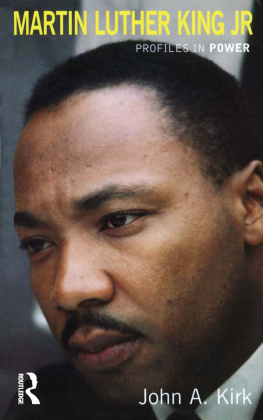
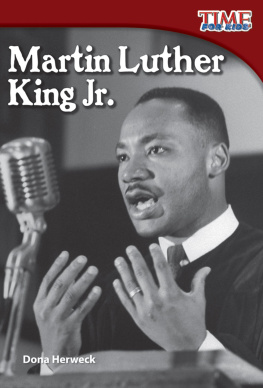
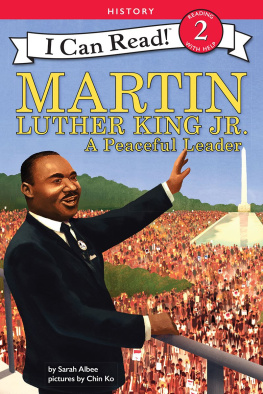
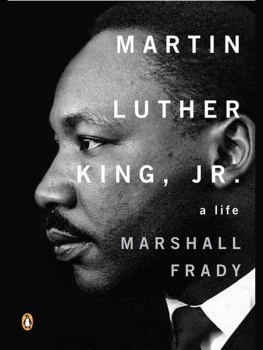



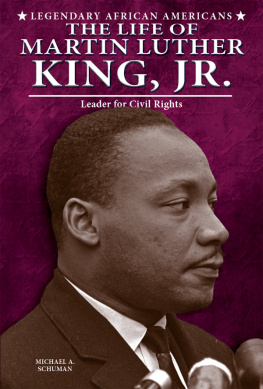


 The paper used in this publication meets the minimum requirements of the American National Standard for Information SciencesPermanence of Paper for Printed Library Materials, ANSI Z39.481992.
The paper used in this publication meets the minimum requirements of the American National Standard for Information SciencesPermanence of Paper for Printed Library Materials, ANSI Z39.481992.